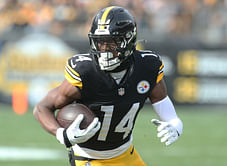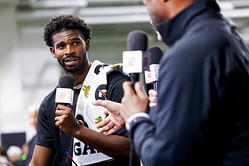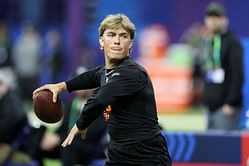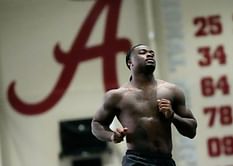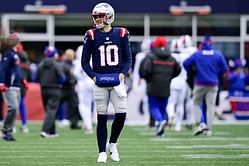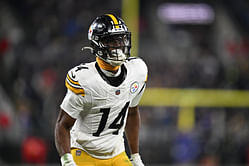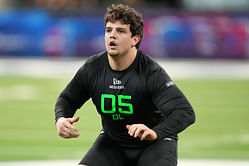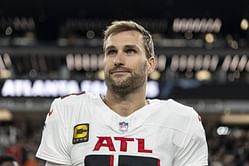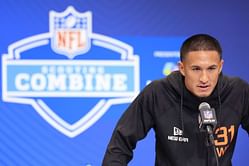
Head coaches are crucial to the success of any American football team. In the NFL, the head coach oversees the training and development of fellow American football athletes. His staff consists of various coaches who cover different position groups with the main responsibility of offense and defense falling on the offensive and defensive coordinators respectively. They both directly report to the head coach.
List of all the Superbowl Head Coaches
As of January 2025, the list of all head coaches to appear in the Super Bowl is as follows:
| Date | Super Bowl | Winning coach | Team | Opponent | Losing coach | Score |
| January 15, 1967 | I | Vince Lombardi | Green Bay Packers | Kansas City Chiefs | Hank Stram | 35–10 |
| January 14, 1968 | II | Vince Lombardi (2) | Green Bay Packers | Oakland Raiders | John Rauch | 33–14 |
| January 12, 1969 | III | Weeb Ewbank | New York Jets | Baltimore Colts | Don Shula | 16–7 |
| January 11, 1970 | IV | Hank Stram | Kansas City Chiefs | Minnesota Vikings | Bud Grant | 23–7 |
| January 17, 1971 | V | Don McCafferty | Baltimore Colts | Dallas Cowboys | Tom Landry | 16–13 |
| January 16, 1972 | VI | Tom Landry | Dallas Cowboys | Miami Dolphins | Don Shula [2] | 24–3 |
| January 14, 1973 | VII | Don Shula | Miami Dolphins | Washington Redskins | George Allen | 14–7 |
| January 13, 1974 | VIII | Don Shula (2) | Miami Dolphins | Minnesota Vikings | Bud Grant [2] | 24–7 |
| January 12, 1975 | IX | Chuck Noll | Pittsburgh Steelers | Minnesota Vikings | Bud Grant [3] | 16–6 |
| January 18, 1976 | X | Chuck Noll (2) | Pittsburgh Steelers | Dallas Cowboys | Tom Landry [2] | 21–17 |
| January 9, 1977 | XI | John Madden | Oakland Raiders | Minnesota Vikings | Bud Grant [4] | 32–14 |
| January 15, 1978 | XII | Tom Landry (2) | Dallas Cowboys | Denver Broncos | Red Miller | 27–10 |
| January 21, 1979 | XIII | Chuck Noll (3) | Pittsburgh Steelers | Dallas Cowboys | Tom Landry [3] | 35–31 |
| January 20, 1980 | XIV | Chuck Noll (4) | Pittsburgh Steelers | Los Angeles Rams | Ray Malavasi | 31–19 |
| January 25, 1981 | XV | Tom Flores | Oakland Raiders | Philadelphia Eagles | Dick Vermeil | 27–10 |
| January 24, 1982 | XVI | Bill Walsh | San Francisco 49ers | Cincinnati Bengals | Forrest Gregg | 26–21 |
| January 30, 1983 | XVII | Joe Gibbs | Washington Redskins | Miami Dolphins | Don Shula [3] | 27–17 |
| January 22, 1984 | XVIII | Tom Flores (2) | Los Angeles Raiders | Washington Redskins | Joe Gibbs | 38–9 |
| January 20, 1985 | XIX | Bill Walsh (2) | San Francisco 49ers | Miami Dolphins | Don Shula [4] | 38–16 |
| January 26, 1986 | XX | Mike Ditka | Chicago Bears | New England Patriots | Raymond Berry | 46–10 |
| January 25, 1987 | XXI | Bill Parcells | New York Giants | Denver Broncos | Dan Reeves | 39–20 |
| January 31, 1988 | XXII | Joe Gibbs (2) | Washington Redskins | Denver Broncos | Dan Reeves [2] | 42–10 |
| January 22, 1989 | XXIII | Bill Walsh (3) | San Francisco 49ers | Cincinnati Bengals | Sam Wyche | 20–16 |
| January 28, 1990 | XXIV | George Seifert | San Francisco 49ers | Denver Broncos | Dan Reeves [3] | 55–10 |
| January 27, 1991 | XXV | Bill Parcells (2) | New York Giants | Buffalo Bills | Marv Levy | 20–19 |
| January 26, 1992 | XXVI | Joe Gibbs (3) | Washington Redskins | Buffalo Bills | Marv Levy [2] | 37–24 |
| January 31, 1993 | XXVII | Jimmy Johnson | Dallas Cowboys | Buffalo Bills | Marv Levy [3] | 52–17 |
| January 30, 1994 | XXVIII | Jimmy Johnson (2) | Dallas Cowboys | Buffalo Bills | Marv Levy [4] | 30–13 |
| January 29, 1995 | XXIX | George Seifert (2) | San Francisco 49ers | San Diego Chargers | Bobby Ross | 49–26 |
| January 28, 1996 | XXX | Barry Switzer | Dallas Cowboys | Pittsburgh Steelers | Bill Cowher | 27–17 |
| January 26, 1997 | XXXI | Mike Holmgren | Green Bay Packers | New England Patriots | Bill Parcells | 35–21 |
| January 25, 1998 | XXXII | Mike Shanahan | Denver Broncos | Green Bay Packers | Mike Holmgren | 31–24 |
| January 31, 1999 | XXXIII | Mike Shanahan (2) | Denver Broncos | Atlanta Falcons | Dan Reeves [4] | 34–19 |
| January 30, 2000 | XXXIV | Dick Vermeil | St. Louis Rams | Tennessee Titans | Jeff Fisher | 23–16 |
| January 28, 2001 | XXXV | Brian Billick | Baltimore Ravens | New York Giants | Jim Fassel | 34–7 |
| February 3, 2002 | XXXVI | Bill Belichick | New England Patriots | St. Louis Rams | Mike Martz | 20–17 |
| January 26, 2003 | XXXVII | Jon Gruden | Tampa Bay Buccaneers | Oakland Raiders | Bill Callahan | 48–21 |
| February 1, 2004 | XXXVIII | Bill Belichick (2) | New England Patriots | Carolina Panthers | John Fox | 32–29 |
| February 6, 2005 | XXXIX | Bill Belichick (3) | New England Patriots | Philadelphia Eagles | Andy Reid | 24–21 |
| February 5, 2006 | XL | Bill Cowher | Pittsburgh Steelers | Seattle Seahawks | Mike Holmgren [2] | 21–10 |
| February 4, 2007 | XLI | Tony Dungy | Indianapolis Colts | Chicago Bears | Lovie Smith | 29–17 |
| February 3, 2008 | XLII | Tom Coughlin | New York Giants | New England Patriots | Bill Belichick | 17–14 |
| February 1, 2009 | XLIII | Mike Tomlin | Pittsburgh Steelers | Arizona Cardinals | Ken Whisenhunt | 27–23 |
| February 7, 2010 | XLIV | Sean Payton | New Orleans Saints | Indianapolis Colts | Jim Caldwell | 31–17 |
| February 6, 2011 | XLV | Mike McCarthy | Green Bay Packers | Pittsburgh Steelers | Mike Tomlin | 31–25 |
| February 5, 2012 | XLVI | Tom Coughlin (2) | New York Giants | New England Patriots | Bill Belichick [2] | 21–17 |
| February 3, 2013 | XLVII | John Harbaugh | Baltimore Ravens | San Francisco 49ers | Jim Harbaugh | 34–31 |
| February 2, 2014 | XLVIII | Pete Carroll | Seattle Seahawks | Denver Broncos | John Fox [2] | 43–8 |
| February 1, 2015 | XLIX | Bill Belichick (4) | New England Patriots | Seattle Seahawks | Pete Carroll | 28–24 |
| February 7, 2016 | 50 | Gary Kubiak | Denver Broncos | Carolina Panthers | Ron Rivera | 24–10 |
| February 5, 2017 | LI | Bill Belichick (5) | New England Patriots | Atlanta Falcons | Dan Quinn | 34–28 |
| February 4, 2018 | LII | Doug Pederson | Philadelphia Eagles | New England Patriots | Bill Belichick [3] | 41–33 |
| February 3, 2019 | LIII | Bill Belichick (6) | New England Patriots | Los Angeles Rams | Sean McVay | 13–3 |
| February 2, 2020 | LIV | Andy Reid | Kansas City Chiefs | San Francisco 49ers | Kyle Shanahan | 31–20 |
| February 7, 2021 | LV | Bruce Arians | Tampa Bay Buccaneers | Kansas City Chiefs | Andy Reid [2] | 31–9 |
| February 13, 2022 | LVI | Sean McVay | Los Angeles Rams | Cincinnati Bengals | Zac Taylor | 23–20 |
| February 12, 2023 | LVII | Andy Reid (2) | Kansas City Chiefs | Philadelphia Eagles | Nick Sirianni | 38–35 |
| February 11, 2024 | LVIII | Andy Reid (3) | Kansas City Chiefs | San Francisco 49ers | Kyle Shanahan | 25-22 |
| February 9, 2025 | LIX | Nick Sirianni | Philadelphia Eagles | Kansas City Chiefs | Andy Reid | 40-22 |
How many coaches have won multiple Super Bowls?
Plenty of head coaches have won the Super Bowl on more than one occasion. As of January 2025, there are 14 head coaches to have won multiple Super Bowls.
| Coach | Super Bowl Wins | Team |
| Bill Belichick | 6 | Patriots |
| Chuck Noll | 4 | Steelers |
| Bill Walsh | 3 | 49ers |
| Joe Gibbs | 3 | Redskins |
| Andy Reid | 3 | Chiefs |
| Vince Lombardi | 2 | Packers |
| Tom Flores | 2 | Raiders |
| Jimmy Johnson | 2 | Cowboys |
| George Seifert | 2 | 49ers |
| Mike Shanahan | 2 | Broncos |
| Tom Coughlin | 2 | Giants |
| Bill Parcells | 2 | Giants |
| Tom Landry | 2 | Cowboys |
| Don Shula | 2 | Dolphins |
FAQs on Super Bowl Head Coaches
A. Andy Reid of the Kansas City Chiefs and Kyle Shanahan of the San Francisco 49ers were Super Bowl LVIII head coaches.
A. Andy Reid is 3-2 in Super Bowls as of January 2025 (via FanDuel).
A. Nick Sirianni's record is 0-1 in the Super Bowl as of January 2025.
A. Bill Belichick is the head coach with the most Super Bowl rings with 6 to his name.
